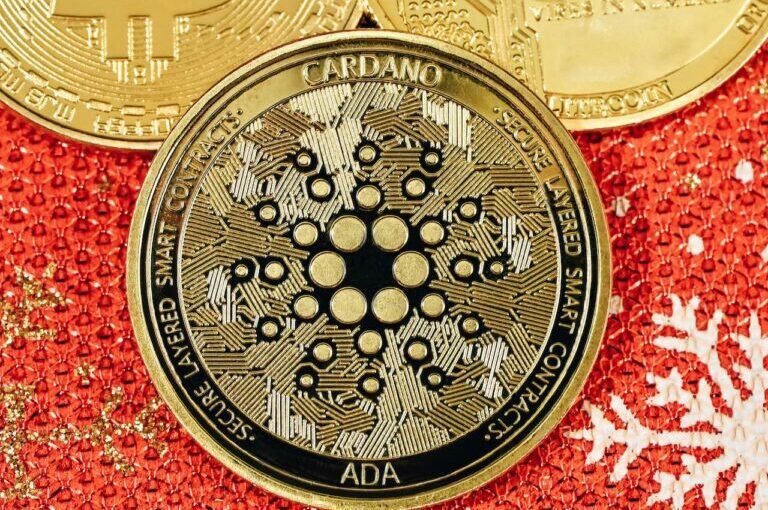Cardano ($ADA) has approached a technical indicator that could see its price surge significantly in the near future, at a time in which cryptocurrency market sentiment has been improving and prices have started rising.
According to cryptocurrency analyst Ali Martinez, Cardano is on the verge of confirming a head and shoulders pattern, a charting formation that he says could lead to a 44% breakout, potentially catapulting ADA’s price to $0.60.
A head and shoulders pattern, it’s worth noting, is a chart formation that predicts a bullish-to-bearish trend reversal, meaning an inverted one means a bearish-to-bullish reversal.
The pattern is characterized by a baseline with three peaks, where one is larger than the other two, resembling a head and two shoulders. It’s considered one of the most reliable trend reversal patterns.
The head and shoulders pattern could suggest Cardano is prepared for a bullish reversal and a potential substantial price hike. As CryptoGlobe reported, Cardano whales have recently went on a $218 million buying spree, purchasing an aggregate of 560 million ADA tokens.
This trend points to a growing interest in Cardano among institutional investors and affluent individuals, suggesting a robust bullish outlook for the digital asset. As a rival to Ethereum (ETH) and other key market players, Cardano has been steadily gaining traction.
The price of ADA could, according to Martinez, enter a bull run if it manages break through a key level that right now hosts a “colossal sell wall,” made up of 3.85 billion tokens being sold. That wall is between $0.40 and $0.42.
Notably, the cryptocurrency community is expecting the price of ADA to drop during the month of April, even as its adoption keeps on growing and whales accumulate the network’s native token.
According to users who submitted price estimates, on average, respondents predicted that ADA would end the month of April trading at $0.37 per token, down significantly from its current price level.
Image Credit
Featured Image via Unsplash
Source: Read Full Article
